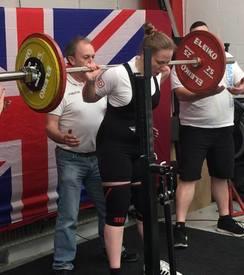going vegan
Replies
-
This content has been removed.
-
suzannesimmons3 wrote: »janejellyroll wrote: »Depends on your beliefs and motivations for doing so.
Pros: much smaller carbon footprint, less contribution to animal suffering. Lower consumption of animal proteins is linked to better heart health. It'll expose you to new foods and cuisines.
Cons: It can be easy to get malnourished if you don't know what you're doing. You need a B12 supplement at the very least, and presumably vitamins D and K2 and iron and zinc and calcium. It's an extreme in some sense, making social eating situations and traveling a bit more involved. It can expose you to a lot of pseudoscience so be mindful of where you get your information (it won't cure cancer for example). If you have other dietary restrictions, such as IBD or gluten intolerance, you'll need to invest even more in diet and plan ahead.
It sounds like the list of cons is longer than the list of pros, but ultimately it's not a lifestyle that's built into our culture hence the need to emphasize research and planning when embarking on a vegan diet. It depends on your motivations. Don't expect this to be an easy fix.
I supplement B12 and D, but get plenty of K, iron, zinc, and calcium from plant foods. This isn't to say that some vegans don't supplement these (just like some non-vegans do), but I wouldn't presume that a vegan has to supplement them.
A vegan has to supplement B12 as you cannot get it in a plant based diet.
I supplement B12, my comment was in reference to K, iron, zinc, and calcium.
1 -
suzannesimmons3 wrote: »janejellyroll wrote: »Depends on your beliefs and motivations for doing so.
Pros: much smaller carbon footprint, less contribution to animal suffering. Lower consumption of animal proteins is linked to better heart health. It'll expose you to new foods and cuisines.
Cons: It can be easy to get malnourished if you don't know what you're doing. You need a B12 supplement at the very least, and presumably vitamins D and K2 and iron and zinc and calcium. It's an extreme in some sense, making social eating situations and traveling a bit more involved. It can expose you to a lot of pseudoscience so be mindful of where you get your information (it won't cure cancer for example). If you have other dietary restrictions, such as IBD or gluten intolerance, you'll need to invest even more in diet and plan ahead.
It sounds like the list of cons is longer than the list of pros, but ultimately it's not a lifestyle that's built into our culture hence the need to emphasize research and planning when embarking on a vegan diet. It depends on your motivations. Don't expect this to be an easy fix.
I supplement B12 and D, but get plenty of K, iron, zinc, and calcium from plant foods. This isn't to say that some vegans don't supplement these (just like some non-vegans do), but I wouldn't presume that a vegan has to supplement them.
A vegan has to supplement B12 as you cannot get it in a plant based diet.
B12 is a bacteria found in soil (and found in animal products due to them ingesting it from the source) and is commonly deficient in many people, meat eaters or not. It's certainly not a plant based problem.
It's also fortified/found in a lot of foods such as cereals, plant based milks/butters, marmite, nutritional yeast... I guess you could say that fortifying foods is supplementation in some form, but it's certainly not necessary to take a physical supplement for it assuming you eat those sort of foods. If you don't, by all means take it, it's a very important vitamin - just putting out there that it is possible to obtain through plant based foods.
The only thing I supplement with is Iron. This was something I benefitted from even when I was eating red meat and animal products every day, so I still take it now. I have tracked my intake and B12, calcium all the rest are fine.1 -
You can get vitamin B12 from yeast flakes and it kind of tastes like cheese! I sprinkle it on soups, stews, pasta etc
0 -
chantelledes3 wrote: »You can get vitamin B12 from yeast flakes and it kind of tastes like cheese! I sprinkle it on soups, stews, pasta etc
Not all nutritional yeast is fortified with B12, so people using it as an alternative to supplements should double-check their brand to make sure it has it.2 -
janejellyroll wrote: »Depends on your beliefs and motivations for doing so.
Pros: much smaller carbon footprint, less contribution to animal suffering. Lower consumption of animal proteins is linked to better heart health. It'll expose you to new foods and cuisines.
Cons: It can be easy to get malnourished if you don't know what you're doing. You need a B12 supplement at the very least, and presumably vitamins D and K2 and iron and zinc and calcium. It's an extreme in some sense, making social eating situations and traveling a bit more involved. It can expose you to a lot of pseudoscience so be mindful of where you get your information (it won't cure cancer for example). If you have other dietary restrictions, such as IBD or gluten intolerance, you'll need to invest even more in diet and plan ahead.
It sounds like the list of cons is longer than the list of pros, but ultimately it's not a lifestyle that's built into our culture hence the need to emphasize research and planning when embarking on a vegan diet. It depends on your motivations. Don't expect this to be an easy fix.
I supplement B12 and D, but get plenty of K, iron, zinc, and calcium from plant foods. This isn't to say that some vegans don't supplement these (just like some non-vegans do), but I wouldn't presume that a vegan has to supplement them.
Interesting, that's good because my gummy multivitamin (I'm an adult!) doesn't have K in it and I assumed it was kinda niche but I've heard vegans who are into nutrition talk about it. Thanks for the followup.1
This discussion has been closed.
Categories
- All Categories
- 1.4M Health, Wellness and Goals
- 398.1K Introduce Yourself
- 44.7K Getting Started
- 261K Health and Weight Loss
- 176.4K Food and Nutrition
- 47.7K Recipes
- 233K Fitness and Exercise
- 462 Sleep, Mindfulness and Overall Wellness
- 6.5K Goal: Maintaining Weight
- 8.7K Goal: Gaining Weight and Body Building
- 153.5K Motivation and Support
- 8.4K Challenges
- 1.4K Debate Club
- 96.5K Chit-Chat
- 2.6K Fun and Games
- 4.8K MyFitnessPal Information
- 12 News and Announcements
- 21 MyFitnessPal Academy
- 1.5K Feature Suggestions and Ideas
- 3.2K MyFitnessPal Tech Support Questions




